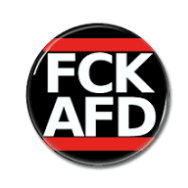If all ministers were required to be ‘honest and ethical’
-
Recently Browsing 0 members
- No registered users viewing this page.
-
Topics
-
-
Popular Contributors
-
-
Latest posts...
-
90
Rabies vaccine?
Yes — that’s true. When giving HRIG (or ERIG), the protocol is to infiltrate as much of the serum directly into and around the wound as anatomically feasible. It’s not pleasant — multiple injections at different angles, directly into the tissue. But that’s because it’s not just a vaccine — it’s passive immunity, and it needs to be where the virus is. If you leave it all in the arm like a flu shot, it doesn’t do its job. -
90
Rabies vaccine?
I had the immunoglobulin shots in the butt, one on each side, nowhere near the bite. -
1,255
Updates and events in the War in Ukraine 2025
Ukraine has officially begun mass production of a weapon that could significantly alter the course of its ongoing conflict with Russia, now in its fourth year. The Sapsan ballistic missile—first mentioned as a domestic defense project back in 2006—entered full-scale production in June 2025, just two years after it was revived from concept status. On June 13, Kyiv announced that the missile would be produced at scale, enhancing Ukraine’s ability to strike targets on Russian soil while also bolstering its defensive capabilities, although few technical details have been disclosed, the missile is believed to have a range of approximately 300 kilometers. Ukraine puts war-changing weapon into mass production in a blow to Putin -
110
The average IQ in Thailand is 89
This is already happening. They want diversity in schools but test standards make this impossible so instead of giving up on diversity they're going to toss out of the tests entirely. https://www.oregonlive.com/education/2023/10/oregon-again-says-students-dont-need-to-prove-mastery-of-reading-writing-or-math-to-graduate-citing-harm-to-students-of-color.html -
-
206
BREAKING NEWS Israel says it has launched strikes on Iran's 'nuclear programme
Is it the same like the Chemical Weapons in Irak?
-
-
Popular in The Pub






.thumb.jpg.3ee24d9400fb02605ea21bc13b1bf901.jpg)





Recommended Posts
Create an account or sign in to comment
You need to be a member in order to leave a comment
Create an account
Sign up for a new account in our community. It's easy!
Register a new accountSign in
Already have an account? Sign in here.
Sign In Now